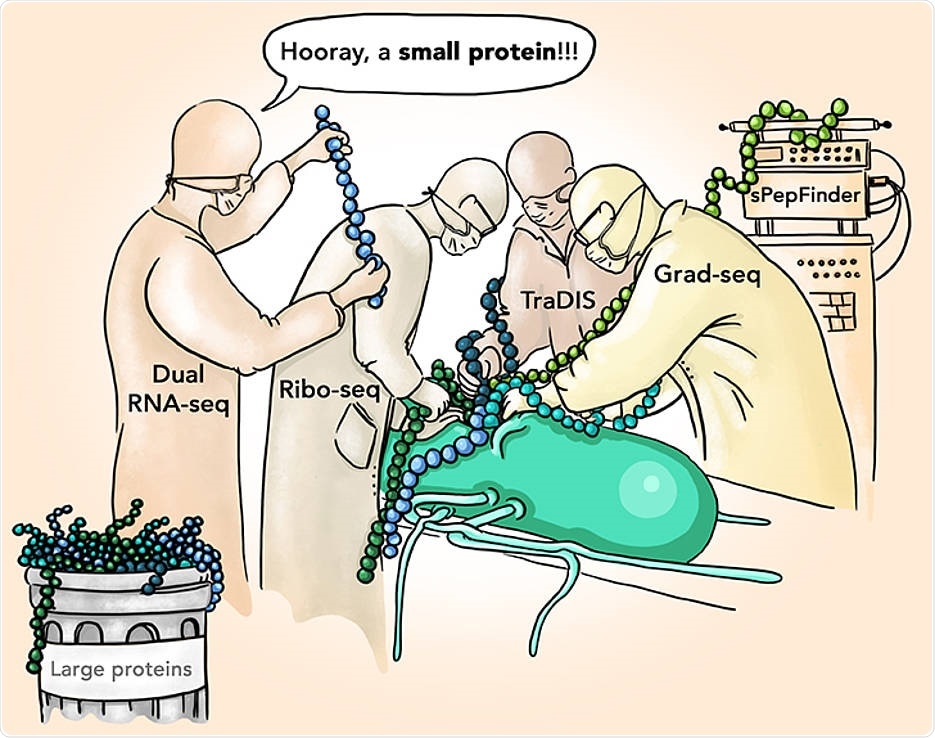Salmonella is a type of bacteria that causes food poisoning upon infection, with acute diarrhea. It can even cause sepsis—life-threatening inflammatory reactions in the whole organism—upon penetrating into the blood system from the intestine.

The combination of different bioinformatics methods has brought new small proteins from salmonella to light. Image Credit: Sandy Westermann/SCIGRAPHIX.
With salmonellae turning more and more resistant to antibiotics, scientists seek new methods to fight them.
Researchers from Würzburg led an international team of researchers on a study that demonstrates ways to be successful in this search. The study has been published in the new research journal microLife.
More than 100 new proteins found
Led by JMU doctoral student Elisa Venturini, the team performed a bioinformatic re-evaluation of the Salmonella genome and identified several unknown small proteins that might have a vital role in infection. Thus, the number of known small Salmonella proteins has increased to more than 600, with the addition of 139 new ones.
MgrB, a small protein made of 47 amino acids, stood out in the analyses. When the gene including the blueprint for this protein is turned off, the salmonellae cannot infect human cells.
The protein had been analyzed even earlier before, but this crucial function had not been identified. A new combinatorial approach has now made this possible. Apart from other details, three data sets produced through previous infection studies were used as part of the approach.
Blueprint for other bacteria too?
Hopefully our approach will provide a blueprint that can also be applied to other organisms for which data sets already exist.”
Elisa Venturini, Doctoral Student, Julius Maximilian University of Würzburg
The researchers have demonstrated evidently that the approach can still lead to the discovery of new relevant genes even in extensively studied organisms like salmonella: Scientists now has a priority list of previously unidentified small salmonella proteins associated with the infection for further analysis.
The research groups involved
The Würzburg laboratories of Professors Jörg Vogel, Cynthia Sharma, Alexander Westermann, and Lars Barquist contributed to the study.
Moreover, research groups from the Albert Ludwigs University of Freiburg and the University of Greifswald took part in the study, as part of the DFG priority program SPP2002 “Small Proteins in Prokaryotes, an Unexplored World.” Researchers from Australia, China, and the Wellcome Trust Sanger Insitute in the United Kingdom also contributed to the study.
Source:
Journal reference:
Venturini, E., et al. (2020) A global data-driven census of Salmonella small proteins and their potential functions in bacterial virulence. microLife. doi.org/10.1093/femsml/uqaa002.